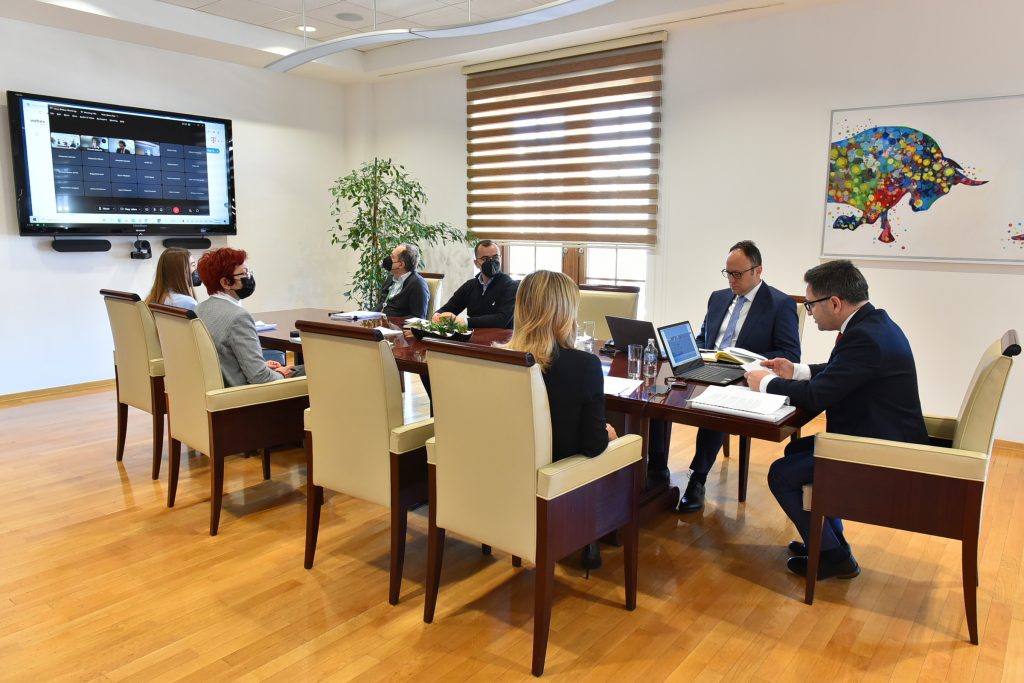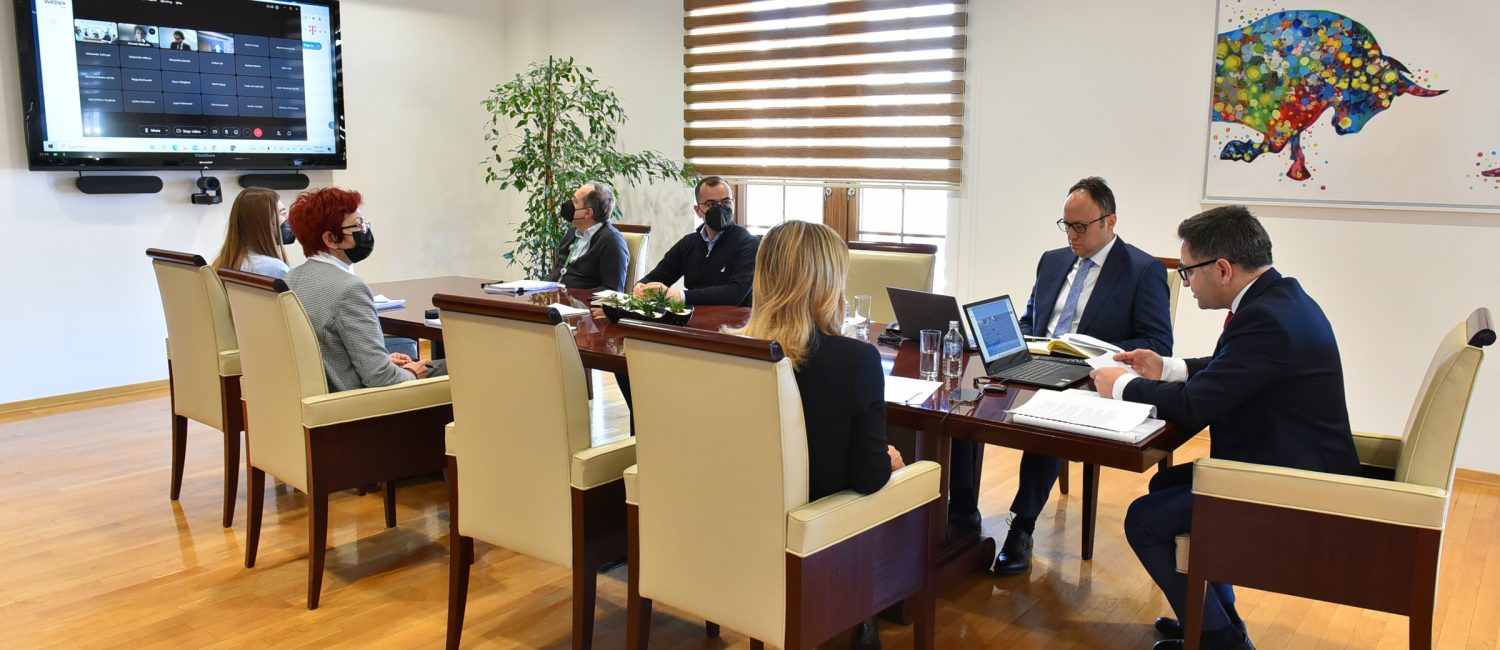18th February 2022, Skopje – Economic recovery, green transition and energy sector modernization, improvement of the education system, the health system, the labour market and the social inclusion, as well as the digital transition and boosting the competitiveness of the domestic companies and their integration in the global value chains are the key challenges set in the Economic Reform Program for the coming three years. Set priorities and measures included therein are in line with the EC priorities and recommendations for our country. Economic recovery is also underpinned by activities geared towards fiscal sustainability in the coming medium-term period, while protecting capital spending, in line with the Fiscal Sustainability and Economic Growth Support Plan, as well as the Growth Acceleration Plan and the Intervention Plan on Investments. These were the main conclusions reached at the high-level meeting at the occasion of the Assessment Mission for the Economic Reform Program 2022-2024. The meeting was co-chaired by Michaela Matuella, Director for the Western Balkans at the European Commission’s DG NEAR Director, and Fatmir Besimi, Minister of Finance of North Macedonia. Deputy Prime Minister in charge of Economic Affairs, Government Ministers, as well as representatives from Directorate‑General for Economic and Financial Affairs and Directorate-General for Employment, Social Affairs and Inclusion, also attended the meeting.

Michaela Matuella pointed out that such format of economic dialogue is conducted only with our country in the region, sending a strong signal to EC on our commitment to the negotiation process, with the Economic Reform Program being of crucial importance and an operating tool to implement the structural reforms, which are a precondition for using the financial resources from the EU Economic and Investment Plan for the Western Balkans.
Both parties underlined the significance of the discussion for the joint conclusions which are to be adopted in May this year within the Economic and Financial Dialogue with the EU.
As Minister Besimi pointed out, jointly adopted conclusions in May will be basis for next year’s Budget preparation, in terms of incorporating the necessary reforms of the Ministries in their budget plans.
Therefore, before EC representatives, Minister of Finance underlined that the Economic Reform Program is an essential and important document for us in terms of introducing the “value for money” concept in the budget process, all to the end of boosting the competitiveness of our country and job creation.
Hence, they jointly agreed for the efforts in the coming period to be put on gradual fiscal consolidation, while protecting capital spending needed for green transition, strengthening the human capital by improving the labour market legal framework, as well as the quality of the education system and social inclusion, continuing the activities for digitalization of public services, streamlining the use of parafiscal charges and reducing the informal economy.
At the conclusion of the meeting, they agreed for economic dialogue to continue in such format in future as well, as a forum of exchanging opinions on the reforms and the measures in the light of sustainable economic development of the country.
Economic Reform Program, which the Minister of Finance submitted to EC on 29th January, is aimed at tackling the key challenges on the country’s competitiveness through concrete reform measures within the European Union dialogue to the end of meeting the economic criteria.
Economic Reform Program is the crucial strategic document in the economic dialogue with the European Commission and the EU Member States. It comprises a medium-term framework of the macroeconomic and the fiscal policies, as well as the structural reforms, which are to contribute to boosting the economy’s competitiveness and job creation.
















